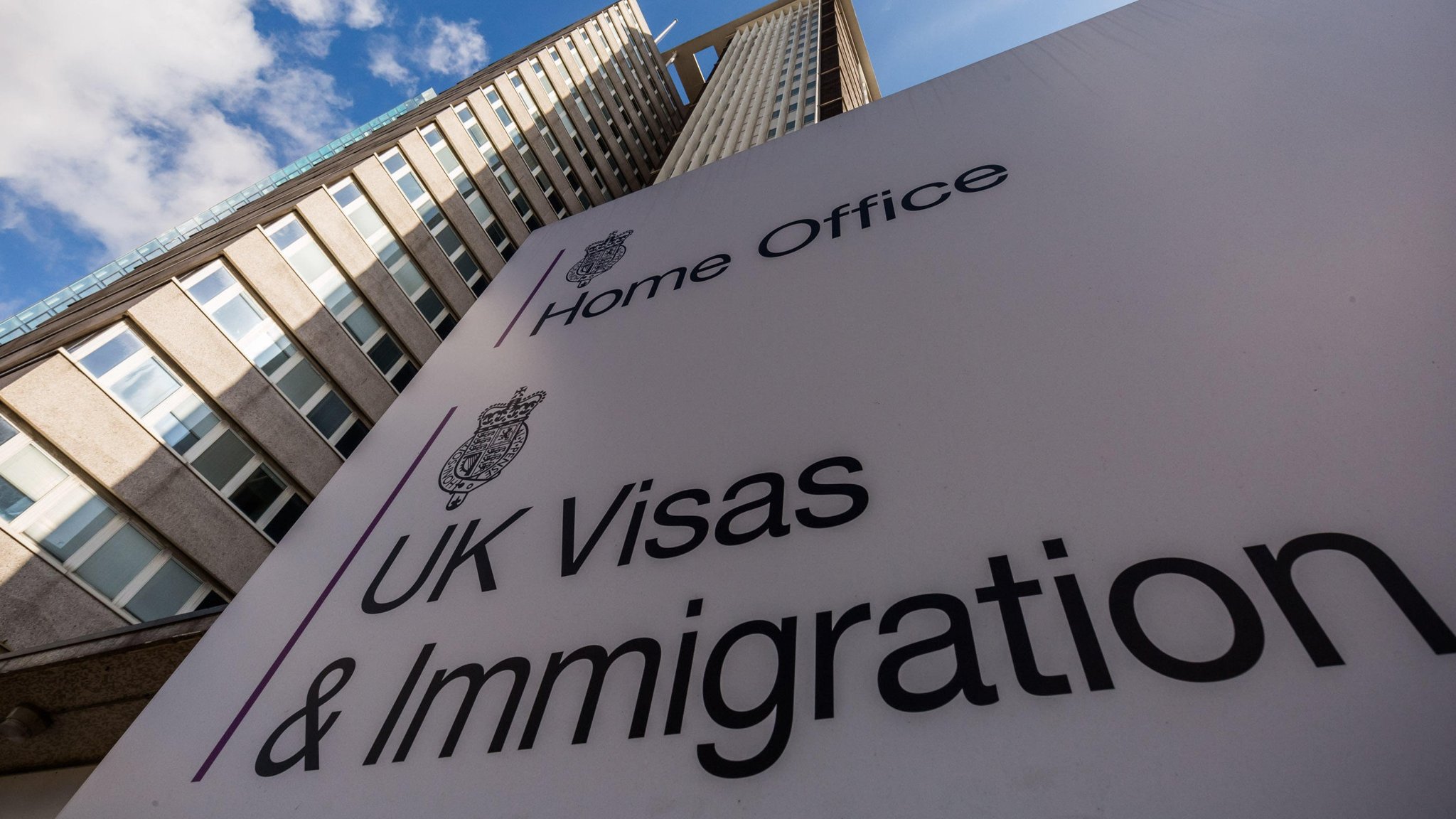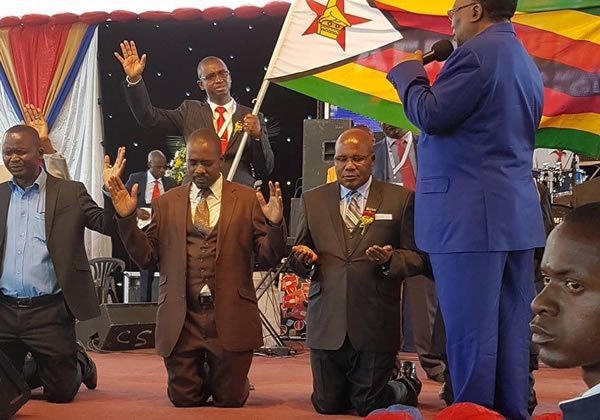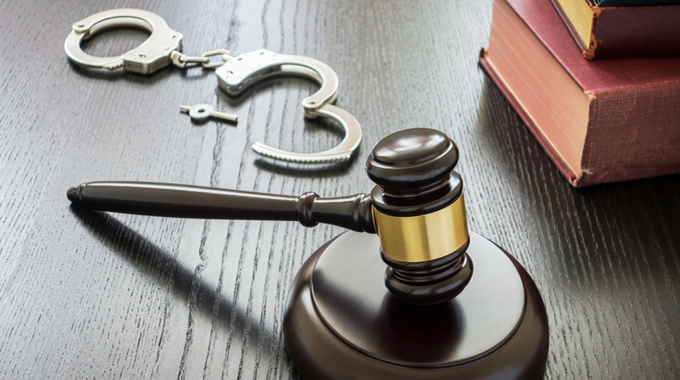Alex T. Magaisa
Away from the political succession drama, in today’s Sunday Mail, President Mugabe takes on another challenge, warning people against what he calls ‘false prophets’.
There is no doubt whom he is referring to here – Zimbabwe has had its fair share of men plying their trade under the label of ‘prophets’. They attract huge gatherings and have a massive following. And they make a lot of money from it.
With congregations of up to 30,000 people on average, they can make up to $30,000 per session with each congregant paying a dollar in offerings. Of course, some of the wealthier congregants pay more. That’s a lot of money in a country where commercial businesses are closing down because of liquidity and cash-flow challenges.
Just recently papers reported that one of them – he is called Prophet Magaya – had a crowd of 350,000 at an All-night Prayer – itself a ridiculous and outlandish figure, which exposes the hyperbolic tendencies of our boys and girls in the media, but is nevertheless generally indicative of his pulling power. The ‘prophets’ have become very wealthy, following in the tradition of theirWest African brothers who feature regularly in the Forbes list of the richest on the otherwise beleaguered continent.
These circumstances have attracted criticism from various quarters. But there are also strong and passionate defenders. And now, for the first time, Mugabe has waded in. While Mugabe expresses sentiments held by those who are critical of these men and their churches, and his sentiments will no doubt be used as validation of their viewpoint, there is also a political purpose here, which requires scrutiny.
These churches are powerful and a potential threat to the political elite, unless they are onside. Those with a sense of history will know that the relationship between the Church and the State has not always been one of a smooth-sailing character.
There was a time, in Medieval Europe, when the Church was extremely powerful since authority to rule was deemed to derive directly from God and the Church was the intermediary. Monarchies therefore depended for their legitimacy partly on the Church’s validation of their right to rule. However, these notions began to change with the growth of liberalism and the liberal democratic state.
This new challenge spurred by the era of The Enlightenment, provided a new dimension to power and politics of the State, namely that authority to rule was no longer seen to be derived directly from God but from the people (even though the definition of ‘people’ was very narrow in that it referred to white men with property and excluded poor men, all women and other races). The distinction between the Church and the State was drawn with the dominance of the notion of the secular (not circular!) State.
But the politician has always been wary of the power derived from religion and have sought to keep the men of religion as far away as possible from the levers of power unless they are facilitating their acquisition and hold on power. In Mao’s China religion was banned, leading to the destruction of many religious monuments. It was said that he swum across the mightyYangtze River 17 times at a point that was considered very difficult, in order to show that he could conquer nature – the Yangtze was and is still worshiped in China.
Because the Church knows of the hostility that its power can attract from the politician, it tries to pacify the politician and to show that it is not a threat. This may explain the recruitment in recent months of a Zanu PF spokesperson as a spokesperson for Makandiwa’s church, much to the surprise and probably, dismay of some of his congregants. What the man whose followers refer to as Prophet Makandiwa was doing was simply a matter of diplomacy and self-preservation by building a relationship with the ruling party and showing that he was an ally and not a threat.
This may also explain some of the so-called prophecies which seemed to forewarn Zimbabweans against demonstrations and were generous about President Mugabe. The aim may have been to pacify Zanu PF and the State. Indeed, it may have come to the ‘prophets’ attention that Mugabe was not particularly amused by their conduct snd power, hence the pre-emptive moves. Many people condemned the ‘prophets’ oblivious of the possibility that the ‘prophets’ were acting on the spur of the instinct of self-preservation and survival.
But at another level and more importantly, perhaps, President Mugabe should ask why thousands upon thousands of the people that he leads flock to these ‘prophets’ and their churches, parting with their hard-earned cash as they do so.
We think it’s largely because of desperation and loss of faith in politics and political leadership generally. The people are desperate. People have lost hope in the State and secular institutions and in politicians and they are looking for divine intervention. That is what leads many of the poor to these prophets and churches, apart of course, from the matter of faith.
These churches preach the gospel of miracles. They have promised miracle money, miracle gold and all sorts of grand benefits. Poor people with little hope look to these new spaces as spaces of hope. The prophets give poor people hope where politicians and politics have let them down.
They have been cheated and abused in politics but the church is seen as a safe space. There is no Zanu PF or MDC in the church; there is no factionalism in the church. They are not forced to go to these churches compared to the force used for them to attend political rallies. They are not forced to pay tithes in the same way they are forced to buy party cards. They do not have to apply to the police to go have their religious gatherings snd if thry do, the police do not prevent them, like they do in politics.
In other words, Mr President, these churches have become spaces in which people are able to exercise their freedoms, which they can’t do elsewhere, especially in the political arena.
They have made claims of miracle healing and changing people’s fortunes. With a public health system in tatters and a private health system that is unaffordable, most people find solace and hope in these prophets and their churches.
In other words, Mr President, the people have lost hope and confidence in the State over which you preside and are now falling victim to the so-called prophets that you are condemning.
The solution to this problem lies in lifting people out of poverty. The solution lies in making the political arena into a decent and civilised space. Right now, the succession drama is exposing more and more of the darker side of politics. People do not like to see the abuse of power. Perhaps President Mugabe must ask why his party’s spokesperson also doubles up as a spokesperson for one of these churches.
As long as politicians fail to deliver, and as long as the State fails to to provide solutions, people will flock to these men and women who promise miracles. In other words, the phenomenon over which he is warning people against is a problem created by poor politics and failure of development. Poor and vulnerable people are always at the mercy of the next great ‘saviour’ and in our case it’s largely because our people have been condemned to a life of penury, indeed, a desperate life.
This article was originally published at http://newzimbabweconstitution.wordpress.com/2014/11/16/prophets-have-flourished-due-to-a-failure-of-political-leadership-mr-president/






